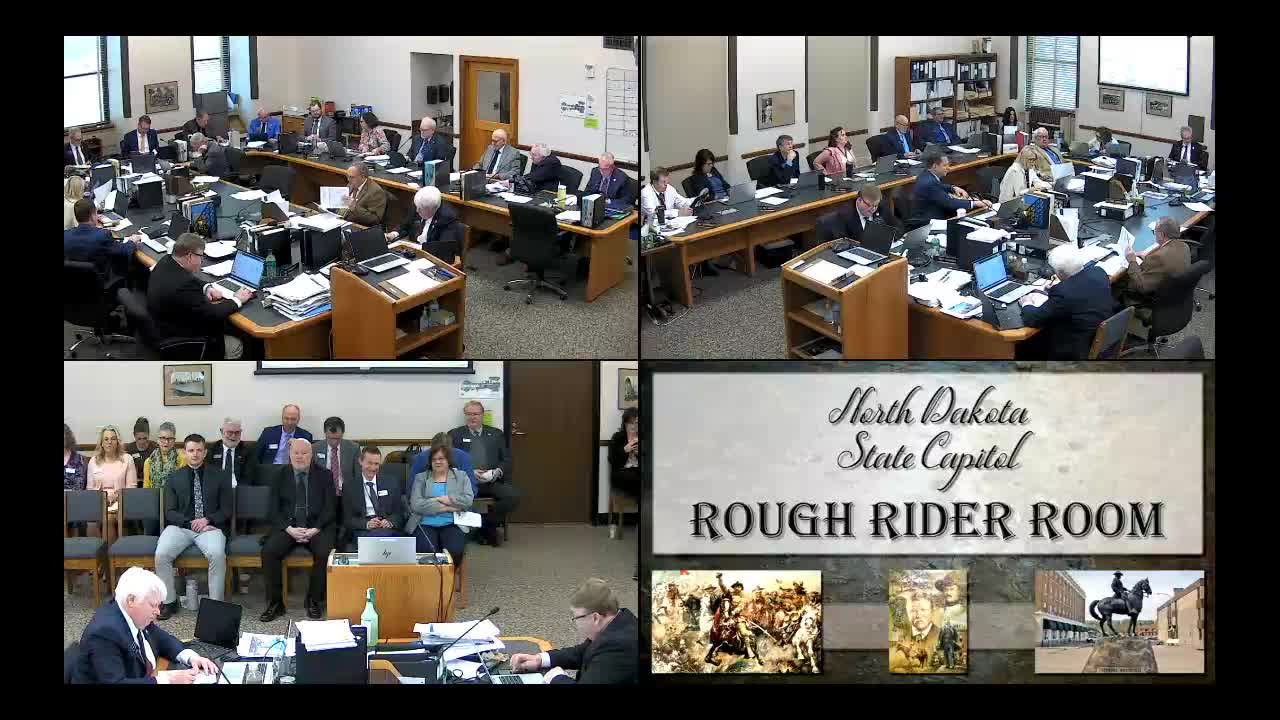Committee advances higher-education budget with investments in student aid, challenge grants and campus projects
Get AI-powered insights, summaries, and transcripts
Subscribe
Summary
The House Appropriations Committee approved a do-pass as amended on Senate Bill 2003 after lengthy discussion about tuition waivers, needs-based grants, challenge grants, workforce-focused funding and several institution-specific projects; motions and amendments carried on recorded votes.
The House Appropriations Committee on Oct. 12 approved Senate Bill 2003, the higher-education budget, as amended after a multi-hour presentation and discussion about student aid, institutional funding formulas and campus projects.
Representative Sanford presented the budget overview, describing the state’s higher-education funding structure and three primary strategies the committee says are used to attract and retain students: needs-based grants and scholarships, a state challenge-grant program that leverages private gifts, and campus-administered tuition waivers. Sanford said institution-level funding exceeds $2 billion when tuition, room and board and research funding are included and noted the request would increase needs-based grants to about $32 million.
Sanford and committee members discussed a range of items in the bill. Notable provisions mentioned in committee testimony and handouts include:
- Needs-based grants: An increase in state support, with a presenter reference to roughly $32 million in state needs-based grant funding. - Challenge grant program: Continued investment in a program that leverages foundation gifts and private donations; the presenter cited an institutional foundation balance nearing $180 million and noted gifts have matched state funds at roughly a 2-to-1 rate over time. - Tuition waivers: Sanford said campuses currently waive about $40 million in tuition annually and that campuses use waivers strategically to recruit students and increase future formula payments tied to credits. - Campus and program-specific items: Start-up and facility funding for Williston State’s health program, a UND National Security Corridor project to build a secure research facility (a SCIF) the presenter said could enable significant federal research partnerships over time, NDSU’s New Horizons workforce-focused initiative (presentation reference to $24 million in start-up support), Minot State’s purchase of a regional health sciences facility, Dickinson State deferred maintenance needs, and a list of capital projects funded from campus building funds.
Committee members asked detailed questions about enrollment, FTEs and program administration. Representative Meyer asked about additional FTEs for UND; presenters clarified many of those positions were appropriated in prior sessions and are being put to use as grant activity increases. Representative Murphy asked about differences in tuition waivers between research institutions and how campuses manage those waivers.
Members discussed language addressing the UND School of Medicine and Health Sciences. The committee adopted intent language and an allocation of tiered building funds to support allied health facility planning and early work; the committee also discussed a non-binding goal that by 2030 some measures should aim for a high share of resident students in medical programs. Several amendments were offered on faculty grievance and hiring procedures; one proposal to explicitly reference State Board of Higher Education policy numbers in statute failed on a recorded vote after discussion about whether statute should lock in board policy references.
Representative Nathie moved the committee’s amendment package (document version 25.017.0.02027); Representative Steeman seconded. The amendment package carried on a recorded vote reported as 20 yes, 0 no and 3 absent; later the committee moved and passed a do-pass as amended on SB2003 by a recorded vote reported as 20 yes, 0 no and 3 absent. Representative Sanford will carry the bill to the floor.
Committee members recorded several excusals from voting on SB2003 because of conflicts of interest; Representative Martinson and Representative Berg were excused earlier in the discussion. Chancellor Mark Hagerott also addressed the committee to answer a member’s question about campus climate and student demonstrations; Hagerott described campuses as safe and said the system had not experienced the type of violent protests that have appeared elsewhere.
The bill includes formula adjustments, a 4% tuition increase allowance and 1% differential tuition authority for select programs, continued support for the challenge-grant model, investments in campus security and IT, and a prioritized list of building fund projects. The committee discussion emphasized workforce-aligned grants, campus-managed waivers used to recruit students, and system efforts to right-size program offerings where appropriate.
